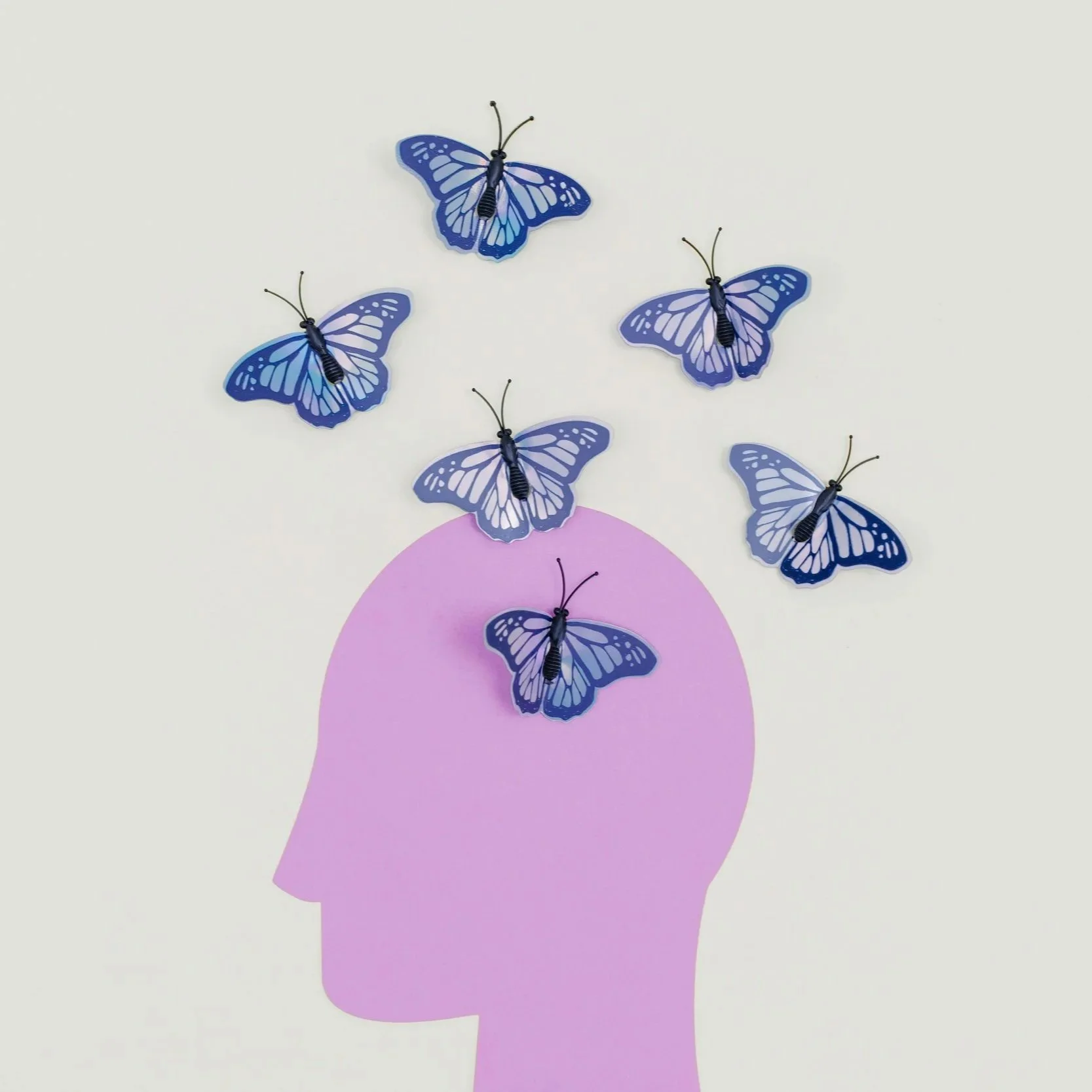What Else Can EMDR Therapy Be Used For Besides Trauma?
When most people hear about EMDR therapy, they think of trauma recovery, and for good reason. EMDR (Eye Movement Desensitization and Reprocessing) was originally developed to treat PTSD and has decades of research supporting its effectiveness in healing trauma.
But that’s not all EMDR can do.
As therapists trained in EMDR, we’ve seen it help clients with a wide range of issues that go far beyond single-event or complex trauma. EMDR works by helping the brain reprocess overwhelming experiences, not all of which are traumatic.
So what else can EMDR therapy help with? Quite a lot, actually.
1. Anxiety of All Types
EMDR can be highly effective for treating generalized anxiety, social anxiety, and performance anxiety. Unlike traditional talk therapy, EMDR doesn’t just help you understand your anxiety, it helps you unhook from the underlying patterns fueling it.
Many anxious clients have past experiences where they felt unsafe, judged, or powerless. EMDR targets these root memories so they no longer send your nervous system into overdrive every time something feels uncertain or high stakes. EMDR can also be used to process imagined scenarios that often fuel social anxiety.
EMDR can help you:
Interrupt racing thoughts
Feel calmer in situations that used to trigger panic
Reduce anxiety about future events, not just past ones
See also: 9 Sneaky Reasons Your Anxiety Isn't Getting Better
2. Attachment Wounds
You don’t need a “capital T” or single incident trauma to benefit from EMDR. Many people struggle with low self-worth, difficulty trusting others, or overwhelming reactions in relationships due to attachment injuries from childhood. These are traumas, but we don't always think of them this way.
EMDR can help you process early experiences where your needs weren’t met. Those unmet needs can be emotional, physical, or relational. These experiences can leave lasting imprints that shape your attachment style, often without you realizing it.
EMDR therapy can support healing if you:
Alexis Harney, LMFT
Alexis is a licensed and fully trained EMDR therapist who specializes in complex trauma and attachment wounding. She works online with clients in California & Florida.
Struggle to feel “good enough” or lovable
Have a hard time setting boundaries or trusting others
Freeze, fawn, or shut down during conflict
See also: Can EMDR Help With Complex Trauma?
3. Chronic Pain & Illness
Pain isn’t just physical. It’s processed in the brain. That’s why EMDR is increasingly used in pain management, especially for conditions with a strong emotional or neurological component (like fibromyalgia, migraines, or IBS). There's a specific protocol developed by Mark Grant for using EMDR for chronic pain, and he's seen incredible results.
In some cases, the pain is linked to trauma or medical experiences that haven’t been fully processed. Think surgeries, hospitalizations, or being dismissed by doctors. Sometimes processing these experiences can help calm your limbic system so your body actually starts to heal.
Laurel van der Toorn, LMFT
Laurel is a licensed and fully trained EMDR therapist. She works online with clients in California, Florida, Colorado, Michigan, and Washington.
EMDR can help by:
Reducing the emotional distress that worsens physical pain
Shifting your brain’s interpretation of the pain signal
Reclaiming agency after medical trauma or misdiagnosis
4. Phobias
EMDR is often faster and more tolerable than traditional exposure therapy for phobias. Instead of repeatedly facing the fear, you’ll work with your therapist to identify and reprocess the original memory or belief system tied to it.
This could be a specific moment (like a panic attack on a plane) or a deeper fear (like feeling unsafe or out of control).
Phobias EMDR can help with include:
Fear of flying
Public speaking
Needles
Medical procedures
Driving
Claustrophobia or agoraphobia
.... and many more
You don’t have to white-knuckle your way through exposure to heal your fear. See also: Will EMDR Therapy Be Too Intense For Me?
5. Obsessive-Compulsive Disorder (OCD)
EMDR isn’t a replacement for OCD-specific treatment like ERP (Exposure and Response Prevention), but it can be a powerful adjunct. This is especially true when OCD is rooted in earlier experiences of anxiety, fear, or shame.
When used for OCD, EMDR is usually called EMD, because there isn't always a specific memory to reprocess. Instead, it's about accessing the feared stimulus, avoiding the ritual, and seeing your anxiety come down naturally. This is similar to ERP but is done in a contained way.
See also: How Do I Know If It's Anxiety Or OCD?
Many people with OCD have past experiences where something bad really did happen, which reinforces the fear that drives obsessive thoughts. EMDR can be an excellent approach in these cases.
EMDR can help with:
Reprocessing memories that fuel compulsions
Soothing the emotional intensity behind intrusive thoughts
Reducing shame and self-judgment tied to OCD
If you’ve plateaued in other OCD treatments, EMDR might be the missing piece.
So… How Do You Know If EMDR Is Right for You?
If you’ve tried talk therapy but feel like you’re still stuck, EMDR might help you go deeper. It’s especially helpful if your thoughts and behaviors don’t always line up with what you know logically. EMDR works with the emotional and body-based parts of the brain that logic can’t always reach.
EMDR As A Powerful, Broad Tool
EMDR therapy is more than just a trauma tool. It’s a powerful way to help your brain and body feel safe again. Whether your symptoms come from a single traumatic event or a lifetime of accumulated stress, anxiety, and emotional wounds, EMDR can offer broad and customized healing.
EMDR Therapy In San Francisco, Los Angeles, and Beyond
Our EMDR therapists work with adults and teens across California and Florida to heal trauma and anxiety, attachment struggles, chronic pain, phobias, and more.
Schedule a free consultation and get matched with an EMDR therapist who can treat more than trauma. You don’t need a specific diagnosis or a clear-cut trauma to benefit from EMDR. You just need to be ready for change and open to healing in a deeper way.





















